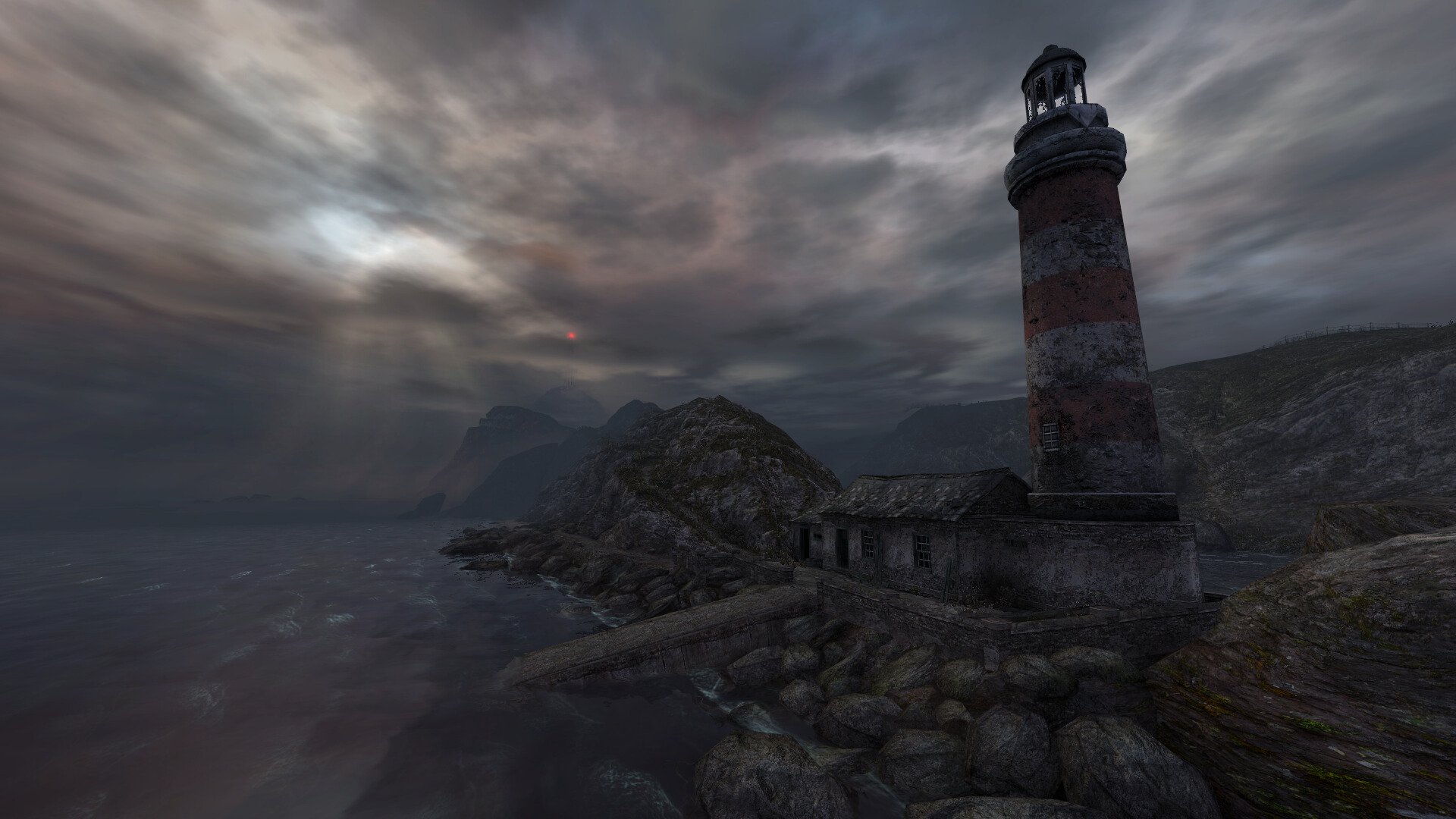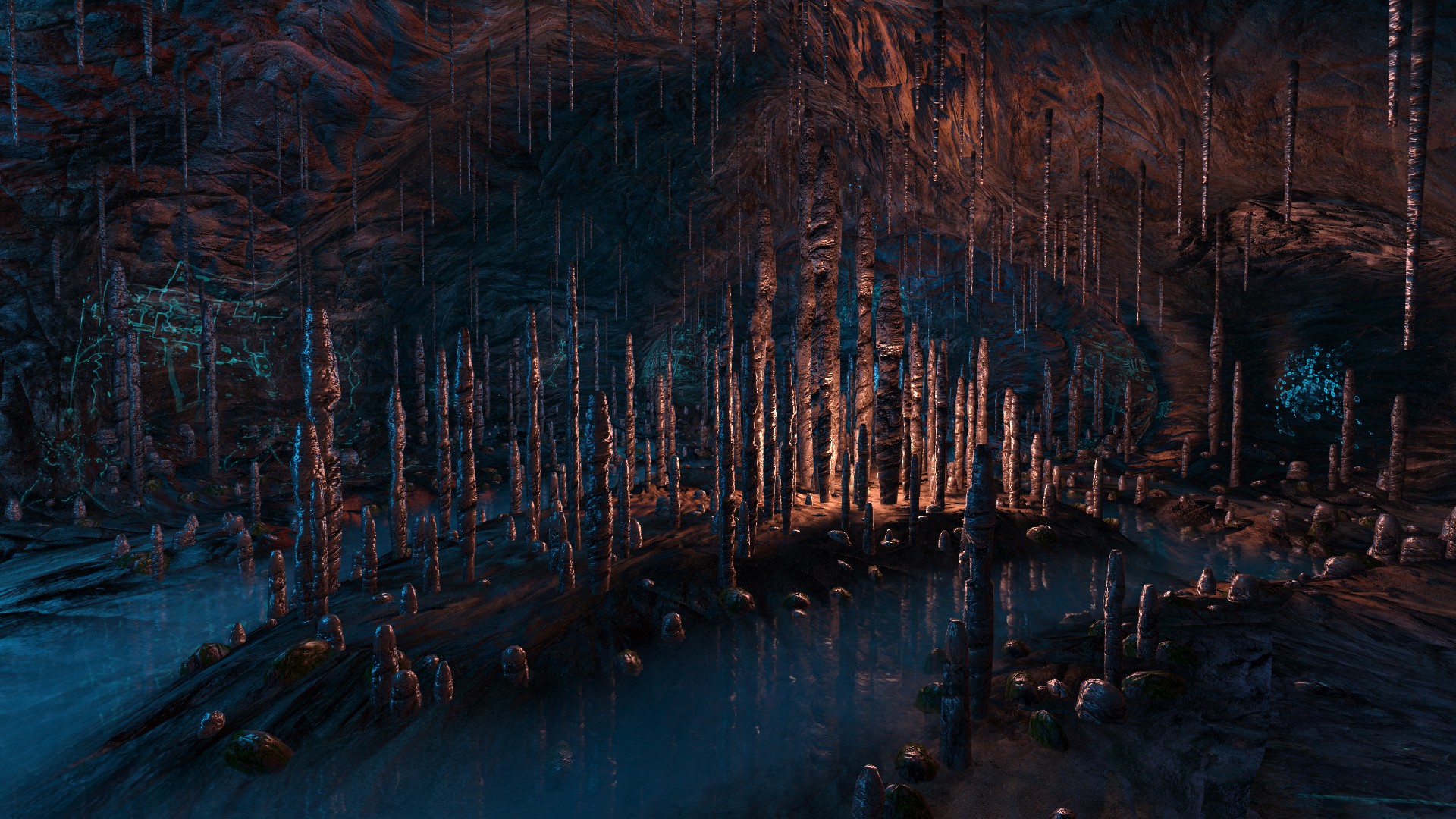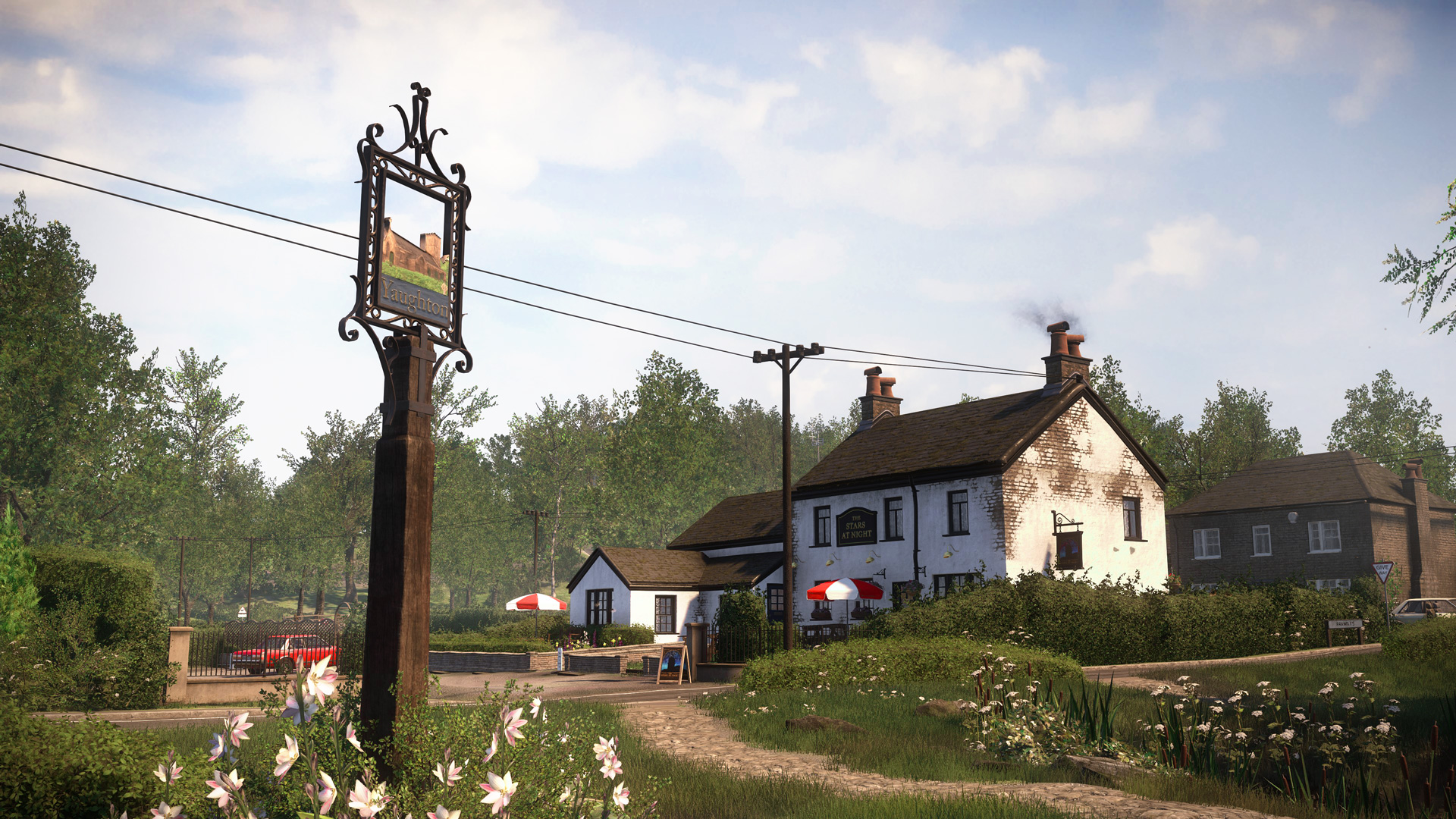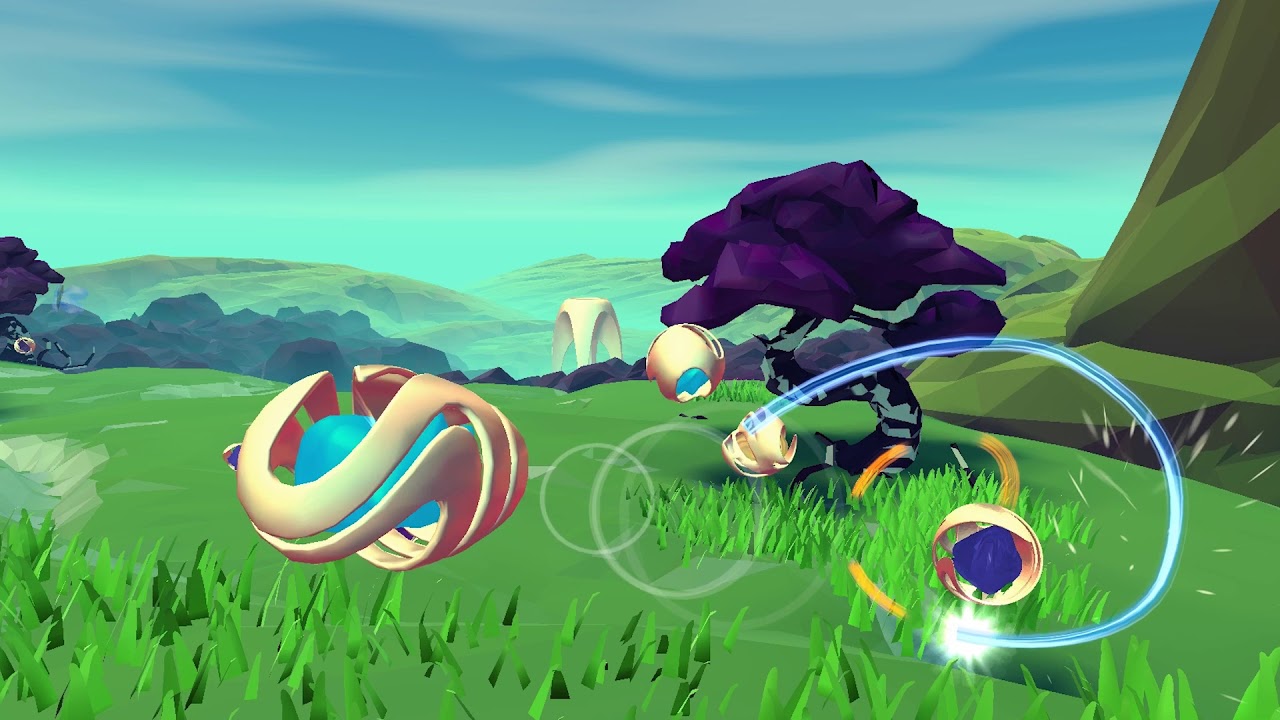Interview with Jessica Curry, award-winning composer and co-founder of The Chinese Room
Video games are constantly changing – becoming a medium for developers to share intimate stories, emotional journeys, and powerful narrative. The Chinese Room are pioneers of a genre of games that allow the player to explore a world filled with poignancy and heart – often tragedy, but always a message you’ll be dwelling on days after playing. Whether you refer to them as walking simulators, first-person narratives, or wander games, they are an important genre in today’s world. They are a place for you to escape to, and maybe relate to as well, but when done right, they can move you in ways you’ve never felt before.
Jessica Curry is a multiple award-winning composer, and also co-founder of The Chinese Room. She’s also a humble, sweet, and lovely individual who has created some of the finest video game music ever, writing the scores for Everybody’s Gone to the Rapture, Amnesia: A Machine For Pigs, and Dear Esther. Recently, I had the opportunity to talk to her about the tour for Dear Esther Live, which starts tonight in Birmingham. We also chatted about where the idea for the tour came from, the process of scoring Dear Esther, Everybody’s Gone to the Rapture, and the struggles and reality of being a video game developer.
First off, with the tour so close, I was curious how everything was going, and what’s it like preparing for something so different to anything Jess has done before. “It’s amazing. It’s all new to me, but luckily, I’ve got this amazing team of incredibly experienced people around me and I’m so grateful for that, because my comfort zone is sitting in a room by myself. I’m generally shy, and so used to sitting behind a computer screen talking to people I know. This has been a mind-blowing shift really. It’s quite overwhelming because I’m quite shy, but then you get the reaction that we’ve had from it, and it makes the fear all worthwhile, because people seem to be really, really enjoying it, and that’s lovely.

That’s the other thing to be honest – I write music for media, and this music goes out into the ether. You don’t normally get a direct response. People might write to you a week later, you know. But this is sitting in the audience hoping people like it, and you’re waiting for that direct feedback at the end. It’s quite scary.”
Dear Esther is five years old now, and I wondered if the live event was a product of the game’s anniversary, or whether the idea to do it came from somewhere else. “I was very kindly invited to go to something called FAMLAB (Film, Archive, and Music Lab); the British Council, PRS, Home Manchester, and the British Institute wanted to get together with people who were film makers and composers going, “what does live music for archive film and silent film look like?” I went on this week and started thinking there’s an amazing idea in here for Dear Esther somewhere. We were at the Barbican and we met with Chris Sharp, who asked if anyone have any ideas. I wasn’t quite ready to put my hand up, but I went home after that week and thought, I’m just going to ring him because he said he wanted ideas, so I got in touch. He said this could be amazing or really shit. He said, “I don’t ever think about games, and I’ve never heard of you, but what we’re here to do at the Barbican is to do things no one else is doing and to take a chance.” So, he said, “alright, let’s do it.”
Jess elaborated on the experience at FAMLAB a bit more. “It was a really organic process where you meet people out of your normal comfort zone and new ideas spring up as a result. And the lovely Austin Wintory had just started Journey Live so that was in my thought process subconsciously, and that was how it was born through chance, really – and it was the 5th anniversary. I went back to Dan and he was like, “yeah.”. It was a nice progression that ties all those things together.”

I asked if Dear Esther Live featured a complete playthrough of the game. “Yeah, it is. The lovely Thomas McMullen is the brilliant game player who has slightly different routes when playing. It’s not exactly music set to a film – he has different routes every night. This has nuances and differences and that really interests me actually.”
I wanted to go to the beginning of The Chinese Room, and the inception of Dear Esther, and find out a bit more about where the idea came from. “Well, we weren’t running a studio at that time and Dan was righting a PhD, as Dan was an academic. He’s obsessed with first-person shooters, and part of the PhD was, if you take gameplay out of the game, what is left? So, he said, “instead of writing about it, what if I make a small game about it myself?” And then he wondered what he could make as someone who’d never made a game before. He decided on an island because it’s a contained space that he could actually make. We talk a lot about how our games have a lot of constraints and how it forces you to be creative in a way, and having an endless budget, and endless amounts of time doesn’t necessarily get you something interesting.
It’s when you have time constraints or funding constraints when you have to think outside the box, and that’s really what happened with Dear Esther. He made this little mod, then he got in touch with Rob Briscoe because we put it on Mod DB. Rob was like, “it sounds great and the story sounds amazing, but it looks really bad.” He wanted to redo the visuals in his spare time. It became a real obsession for him, working on it full time for two years, and then at the end saying, “hang on, this is crazy. Why don’t we try and sell it?” That first night on Steam – the figures just kept going up and up and up. It was so bizarre. It changed our life on so many levels.”

I thought it must be nice being able to go back to the start, and have this concert that focuses solely on why you do what you do, and what started off The Chinese Room. “Yeah, that’s why I love it. It’s really nice meeting people after the gig. I met one man who said he’d downloaded the mod off mod DB in the very beginning, and we had a chat – I never would have met that man if it wasn’t for these gigs. And even though it is difficult to meet people for me, it’s been so lovely to hear so many lovely stories about why people love the game, who they’ve played it with, and who they’ve shown the game to.”
The process for writing video game soundtracks must be an interesting one, but I was interested to find out how it worked for Dan and Jess. “Dan and I tend to work quite differently anyway because we are a composer and a writer, and we’re married, so it’s an intense relationship. We have a short hand which is really, really nice. Often Dan will start with fragments of sentences he’s written. There will be some very evocative words and he’ll ask to write something around it, or he’ll describe something to me. He really evokes things so well through language, and that’s how I work best, and it’s the way we’ve always done it on every game. It always starts with me and Dan in a room bringing a world to life through his lovely words and I really like working that way – it becomes really interactive as a process.”
Now, I’m a huge fan of Everybody’s Gone to the Rapture, and whilst we were talking about scoring the games, I wanted to bring up my favourite section of the game, and the most moving for me; it’s the scene where Frank is giving the speech about his wife, right before the bombs drop. “It’s really interesting that you should talk about Frank’s hill, as we called it on the team, because it was so complicated (Rapture) on many levels, and we were all learning as we went. We all hoped it would work, and we were working with a big publisher for the first time. I really struggled to find the voice of the music, and then I heard Elin Manahan Thomas who ended up being the soprano on the score, in a concert. I thought, this is the voice of Rapture. And once I found her it unlocked my compositional voice. I said to Dan and the team, “I’ve written this piece of music for Frank and his speech. James Watt, the Effects Artist at the time had just finished that bit, so we were like, “right, bang that music in! Let’s get it in and see if it works.”

It’s really hard work making a game. It can be very pragmatic, and you’re thinking about very practical issues, but Dan said, “let’s get the team in, and let’s just watch it on James’ computer. James started to play the music, and everyone just stopped, and realised that the sense of something in the room had changed. A couple of people had tears in the eyes, and everyone was in this amazing moment. We all just stopped and were like, “Yes, this is going to be really good.” It was probably my best moment in the two and a half years of development because it was just a collective moment of understanding; what we had done individually was good, but collectively it was just a beautiful moment.
Jess has done a lot of varied work, but a game many may not know about, or had a chance to play is So Let Us Melt. It’s a title The Chinese Room worked on for Google VR, and when I asked the question if Jess had anything she’d like to do that she hadn’t done already, this came up. “I would really like the new game we’ve put out, So Let Us Melt in VR – I would love, and I don’t know if this is even possible, or wise, or legal, but I would really love to get everyone in a concert hall with VR headsets on and play the score live. Everyone just presses go at the same time. It’s not interactive, but it’s on rails, and everyone is having their own experience in a collective space.
The sad thing about So Let Us Melt is so few people have the hardware to play the game and we busted a gut on that game, much like every developer does. So many people have said how much they want to play it, and they don’t want to listen to the soundtrack until they’ve played the game. I think it’s going to get lost in the mists of Chinese Room history. After all that work it’s been really, really tough for us, knowing not many people can play it. It’s a little gem of a game, and the music’s really beautiful.”

I felt a great deal of empathy for Jess and The Chinese Room at this point. So much work had been put into this game, and few were playing it because of the platform. In this moment, Jess was being honest, and it was quite moving. “We’ve learned a lot from it – it’s not an accessible platform. It puts you in a really vulnerable place as a developer. We put as much care and love into it, and effort into So Let Us Melt as we have with every other game, and barely anyone has been able to play it. That’s always the risk with VR. It’s sad, but when it’s exclusive to that hardware, you’re a bit scuppered really. You just want people to experience the work that you’ve made, and you feel like you’re letting the fans down.”
We ended on a high, though. For those of you worried about the future of The Chinese Room, don’t fear. They’ll be back, and it sounds incredibly exciting. “The Chinese Room will keep innovating and expanding. We’re having this pause at the minute, and partly it’s because we exhausted ourselves through the medium of this station. We’ve had an amazing six months, and we were so sad when it happened. But, Dan is revving up with the most crazy, extraordinary plans, so it definitely isn’t the end of The Chinese Room. We weren’t sure when it first happened – we weren’t sure what we’d do, but we just needed time to re-evaluate and re-access, and rest. The nice thing is, I think The Chinese Room will be back bigger and better by the sounds of it, and I think Dan has plans for world domination.”
Dear Esther Live starts tonight in Birmingham, and continues across the country until February 2, ending in Brighton. Information on the tour can be found here.





